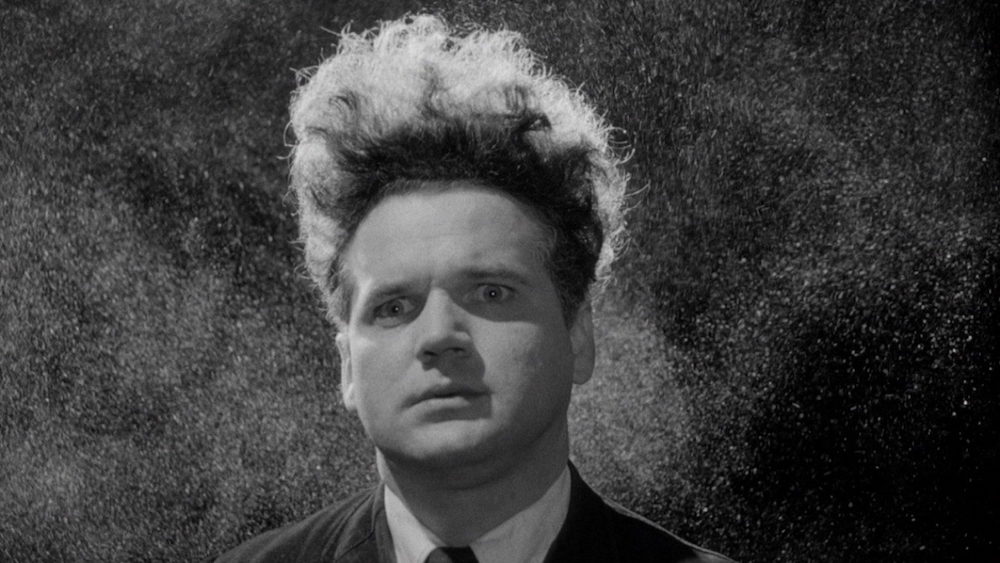While watching Dario Argento’s engrossingly decadent, nonsensical, phantasmagoric ballet-school horror film Suspiria at the IFC Center, the scales fell from my eyes. I had previously come to accept as an unfortunate but unavoidable fact that the great Italian films produced in the forty years after the Second World War—films by Rossellini, Fellini, Pasolini, Antonioni, De Sica, and Argento—had all their dialogue dubbed in post-production, with no concern for fidelity to the acoustical environment or the movement of the actors’ mouths. Whispers are deafening; sentences careen blithely on after an actor’s face has gone still; an actor’s mouth plainly repeats the same word over and over as the soundtrack magically produces the most varied eloquence. I assumed it a national quirk, like the French and their reverence for Jerry Lewis, and the price of admission to these masterpieces—to their sensuousness, their mixture of pitiless realism and old Hollywood glamour, their feel for the physicality of actors. Then, with Suspiria—in which these qualities are raised to the nth degree, in which pure style is predominant over any narrative coherence—I realized the atrocious dubbing, the flagrant lack of concern for dialogue, is inextricable from the very things that make these movies uniquely great. In essence, the Italians continued to make silent films deep into the sound era, with all the lost qualities inherent to silent film. The decoupling of dialogue from filming seemed to unchain the camera of the Italian filmmakers, free to roam at will, free to hold and hold on faces, waiting for the slightest barometric shift. In Antonioni’s L’Eclisse, far more information is conveyed by the choreography of two characters following each other through an apartment than by dialogue. The Italian film stars of the era—Marcello Mastroianni, Monica Vitti, Sophia Loren, etc.— are so vivid in memory precisely because their voices are indistinct. Compare them to a star like Humphrey Bogart, whose voice is so famous, and whose iconic moments—“Here’s looking at you, kid”—are so often bound up with dialogue. The aura of the Italian stars is visual, a silent luminosity adhering to them like the saintly halos in an icon. As the faded silent film star Norma Desmond says, contemptuously, in Sunset Boulevard: “We didn’t need dialogue—we had faces!” —Matt Levin
As Alicia Keys once so sagely sang, “Some people need three dozen roses, and that’s the only way to prove you love them.” All I need is a few poems sent to my inbox. This week my beau obliged me with three poems by Shira Erlichman, published in the Rumpus. Erlichman’s poems are equal part thorn and flower. I love a poet who knows what to do with a title, and Erlichman’s are as spare and spritely as the rest of her text. “Alice in a White Towel at the Top of the Banister, Dripping” delivers on its budding promise, working through the complex relationship a child has to her babysitter, a hydra of feeling: one head mother, one head sister, one head older self, one head foundational sexual fantasy. Another poem, “How to Become a Forest Fire,” is full of conceits which shouldn’t work and do. “The teacher has never studied the topic. ‘I’ve been/many things, but a forest fire, not yet.’” And then: “Tomorrow is our final exam. No pens, no paper, no gasoline.” The final poem in the trio, “The Deer,” is the hardest to write about but no less fine. The speaker sees herself in skinned deer unloaded from a truck. Against the oddity, I thought, “Oh yes. I, too, have been a skinned deer on Flatbush Avenue.” For Freud the uncanny was “that class of the terrifying which leads back to something long known to us, once very familiar.” Erlichman’s poems are superlatively uncanny. You recognize the language, the images, the feeling, but the terror and the power is all new. —Julia Berick
Dizziness, drowsiness, dry mouth, sneezing, sore throat, increased urination, decreased sexual desire, nausea, numbing, problems with memory, and inability to orgasm. These are just some of the possible side effects of Celexa, an antidepressant that Sarah Fawn Montgomery’s family has been taking for generations to combat various anxiety disorders. Montgomery’s journalistic memoir, Quite Mad, is a story of a woman diagnosed with debilitating anxiety, OCD, and PTSD. She envelops her readers in the turbulence of her every-day existence, plagued with panic attacks, persistent fears, and self-doubts. Time and time again, Montgomery is shocked when people tell her that drugs will help her feel “normal,” that another diagnosis or a new pill is the answer. But this toxic perception of mental illness—what it is, how to cure it—doesn’t come from the pills. Montgomery reveals that it’s perpetuated by American culture itself. In recent years, depression and anxiety have become fashionable topics, diagnosed individuals are often forced to hide in stigmatized silence. Montgomery puts American denial on display, describing why we label mental illness so paradoxically: “to talk of disease without cure is problematic for a country concerned with triumph.” As a country we choose to pop pills instead of accepting the difficult aspects of human existence, medicating ourselves into oblivion. Quite Mad is the wake-up call that we need. —Madeline Day
The first time I watched the movie Eraserhead, I sat through the credits, stunned silent and head spinning. I had never in my life seen anything like that before, and while it is a large claim to say a film has changed you, it undoubtedly changed—expanded—my understanding of what filmmaking can do. It isn’t just the pioneering foray into the genre of horror (“Oh, you are sick!”), but the creation of an aesthetic world that felt so fully realized. To this day I have yet to find a movie with sound design as atmospheric and subtly unsettling. Room to Dream, a memoir/biography hybrid by Lynch and Kristine McKenna, is a hefty hardcover that immediately states its eschewal of critical analysis in favor of offering the reader insight into the man himself. Lynch’s work, however, is everywhere in it. One quote strikes right at the heart of Lynch: “I think that people feel fear even when they don’t understand the reason for it. Sometimes you walk into a room and you can sense that something’s wrong.” This has always been Lynch’s particular gift: the ability to invoke on-screen a fear that comes from some place beyond our immediate reality. Room to Dream’s method is bifurcated: McKenna writes one chapter of straight biography based on research and interviews, which is then followed by a chapter of memories and reactions written by Lynch. The result is episodic and detail-oriented, a truly absorbing portrait of a man. While Eraserhead is a singular note in Lynch’s ouevre, being stylistically very different than his work on Mulhullond Drive, Blue Velvet, or Twin Peaks, it is still true that collectively Lynch is an artist who offers a vision of American life that strikes at the fear we can’t name, who portrays the strangeness that can only exist outside fiction. Room to Dream is a key into that vision. —Lauren Kane
from The Paris Review https://ift.tt/2M2K2Bj



Comments
Post a Comment